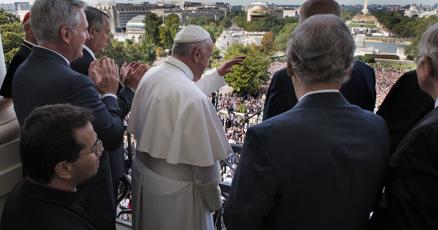Breaking: Pope Francis's Transformative Decade - How He Reshaped American Catholicism

During his historic visit to the United States, Pope Francis found himself in an unexpected encounter with Kim Davis, a Kentucky court clerk who had become a national figure for her controversial stance against same-sex marriage. Davis had gained widespread media attention for refusing to issue marriage licenses to same-sex couples, firmly grounding her decision in her deeply held religious convictions.
The pontiff's brief meeting with Davis highlighted the complex intersection of religious freedom, personal beliefs, and civil rights that had captivated public discourse during that time. While the Vatican initially provided limited details about their encounter, the meeting sparked intense debate and speculation about the Pope's potential support for Davis's position.
This rare interaction during the Pope's whirlwind American tour underscored the nuanced and often challenging dialogue surrounding religious liberty and equal rights in contemporary society. It was a moment that captured the attention of both religious conservatives and civil rights advocates, demonstrating the Pope's willingness to engage with controversial figures who stood at the center of significant social debates.
